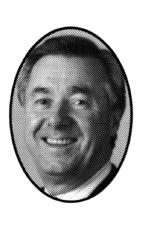No, Mr. Speaker, but when I come face to face with incomprehension, I certainly realize it.
There is no doubt that some of the 65 recommendations we made in fact concern a number of the points the hon. member has raised. However, I would point out to him that the recommendations on the military justice system and the operation of the military police were prepared and submitted to the Prime Minister and the government without a single letter being changed. The recommendations are the result of work presided over by a former chief justice of the Supreme Court of Canada.
I think the hon. member should make sure his facts are right and that he understands what he is saying when he refers to the recommendations on the military justice system and the military police. Because when the time comes to judge the content, I believe the opinions of the hon. member will be measured against the ability of the former chief justice of the Supreme Court of Canada.

